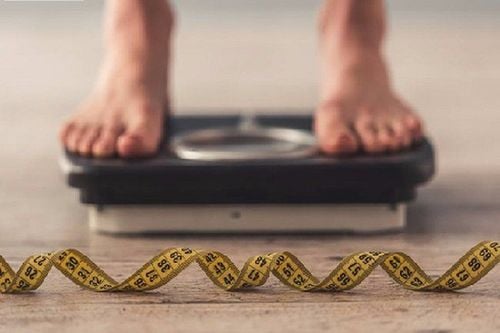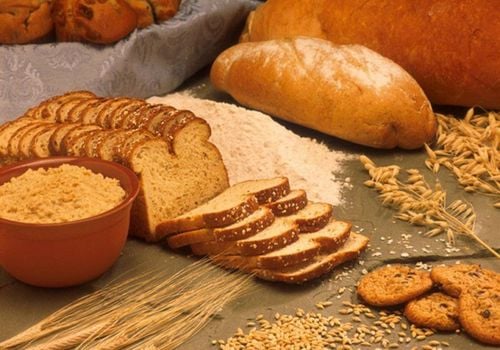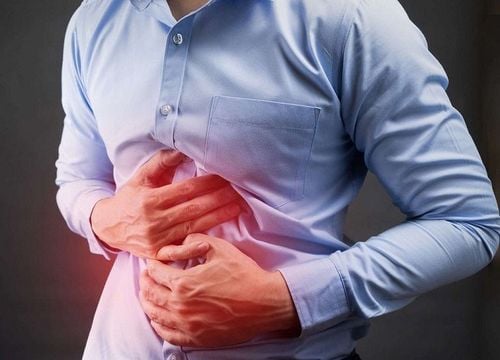This is an automatically translated article.
A new study published in the journal Molecular and Cellular Biology shows that starving the body can cause the death of several important cells in the body since a lack of glucose and other key nutrients can destroy the body's ability to function properly. your immunity. Here's what you need to know when starving or intermittent fasting.1. What does 'body starvation mode' mean?
Weight loss has been linked to many physical and mental health benefits and is often seen as a positive thing. Your brain, however, is more concerned with keeping you from going hungry. As you lose a lot of weight, your body starts trying to conserve energy by reducing the number of calories it burns. It also makes you feel hungrier, and increases cravings. These effects can cause you to stop losing weight and can make you feel so tired that you give up on your weight loss efforts and gain it back. This phenomenon, which is the brain's natural mechanism to protect you from starvation, is commonly known as "starvation mode".If you think that starving your body is the best way to lose weight, you are completely wrong! Health experts have emphasized time and time again about the harmful effects of skipping meals.
What people commonly refer to as "starvation mode" (and sometimes "metabolic damage") is your body's natural response to long-term calorie restriction. It involves the body responding to a decrease in calorie intake by reducing calorie consumption to maintain energy balance and prevent hunger. This is a natural physiological response, and the term for it is "adaptive thermogenesis". The term fasting regimen is a misnomer, as fasting is actually something that is almost completely unrelated to most weight loss.
Starvation is a useful physiological response, although it does more harm than good in the modern food environment, where overweight and obesity are on the rise. Obesity is a disorder of excess energy accumulation. The body puts energy (calories) into fat tissue, storing it for later use. If more calories go into your adipose tissue than you leave out, you will get fat. Conversely, if more calories leave your fat tissue than you take in, you'll lose fat.
All weight loss diets reduce calories. Some do it by controlling calorie intake directly (calorie counting, serving weight, etc.), while others do it by reducing cravings so that you automatically eat fewer calories.
When this happens, the number of calories leaving your fat tissue (calories out) will be greater than the number of calories going in (calories in). As a result, you lose fat, which your body considers the start of hunger. As a result, your body will fight back, doing whatever it takes to make you eat more, increasing your calorie intake, but they can also affect how many calories you burn (calories consumed).
Starving mode implies that your body cuts calories out to restore energy balance and prevent you from further weight loss, even with continued calorie restriction. This phenomenon is real, but whether it has such a strong effect that it can prevent you from losing weight or even cause you to gain weight despite continued calorie restriction is unclear.

Giảm cân có liên quan đến nhiều lợi ích sức khỏe thể chất và tinh thần và thường được coi là một điều tích cực
2. What happens to your body composition when you starve to lose weight?
You may have a few (or more) extra pounds that you want to lose. What you will do? Naturally, like most people, you turn to tried-and-true methods of weight loss, diet, and exercise. You start running or weight training a few days a week. You start to tighten your diet, quit snacking, and cook at home more often.For some people, the results from this process are not achieved quickly enough. If you can't achieve your goals, like yesterday, what will many people do? Some turn to extreme diets or diets that are starving to lose weight, restricting calories much lower than their daily energy needs. They may lose weight fast, but what really happens to their bodies? What are the short- and long-term health effects of starvation on body composition?
2.1. What are the components of our body? Body composition is the term used to describe the components that make up your body: Fat and fat free mass. Fat-free mass is made up of everything fat-free, such as protein (lean muscle, organs), water, vitamins, and minerals (i.e. bones and blood iron).
To change body composition, you can't just focus on the goal of losing weight. Instead, your goal is twofold: Lose fat mass while maintaining or increasing body mass. But why should you focus on changing your body composition instead of losing weight?
Simply put, gaining lean muscle will make you look leaner, even if the number on the scale stays the same. That's because muscle is more compact than fat. So focusing on body composition, as opposed to fat loss, can help you improve your overall appearance and reduce body fat while increasing strength.
2.2. Why did you choose to fast? The standard pattern of weight loss is calories in and calories out. If you consume more calories per day than you burn, you will gain weight; By burning more calories than you take in each day, you will lose weight. Calorie restriction is important if you are looking to see the amount on the pounds lose.

Chế độ ăn kiêng có thể giúp bạn đạt được “trọng lượng mục tiêu”
2.3. What happens to the body when fasting? Research shows that people who use the diet to lose weight, eating 50% of their energy needs for three weeks, have reduced their overall body weight. However, they also lost 5% of their lean muscle mass. If starvation is maintained continuously, lean muscle mass and organ size will decrease by 20%.
Likewise, a study in rats showed that lean mass and lean muscle mass were sacrificed during starvation; however, body fat stores were relatively similar in the control diet and in the obese diet mice.
Fasting weight loss causes individuals to lose significant amounts of lean muscle mass. Lean body mass, including water, bones, organs, etc. injured. Conversely, increasing body mass index increases bone strength and density, a common concern among many Americans as they age.
A study using participants has shown that a significant reduction in calories from the diet leads to significant weight loss and a decrease in lean muscle mass. However, the participants also regained almost all of the fat they had lost within eight years. This fosters discussion and understanding on an important topic - metabolism.

Việc giảm lượng calo đáng kể từ chế độ ăn uống sẽ dẫn đến giảm cân đáng kể
This means that a certain amount of calories is required to maintain your lean mass. If you fall below this number, your body will be forced to break down these muscle stores to produce energy. The diet has far-reaching negative effects on the body. Starving the body for weight loss alters metabolism, reduces lean muscle, decreases bone density, and decreases strength.
Please dial HOTLINE for more information or register for an appointment HERE. Download MyVinmec app to make appointments faster and to manage your bookings easily.
Reference sources: healthline.com, inbodyusa.com












